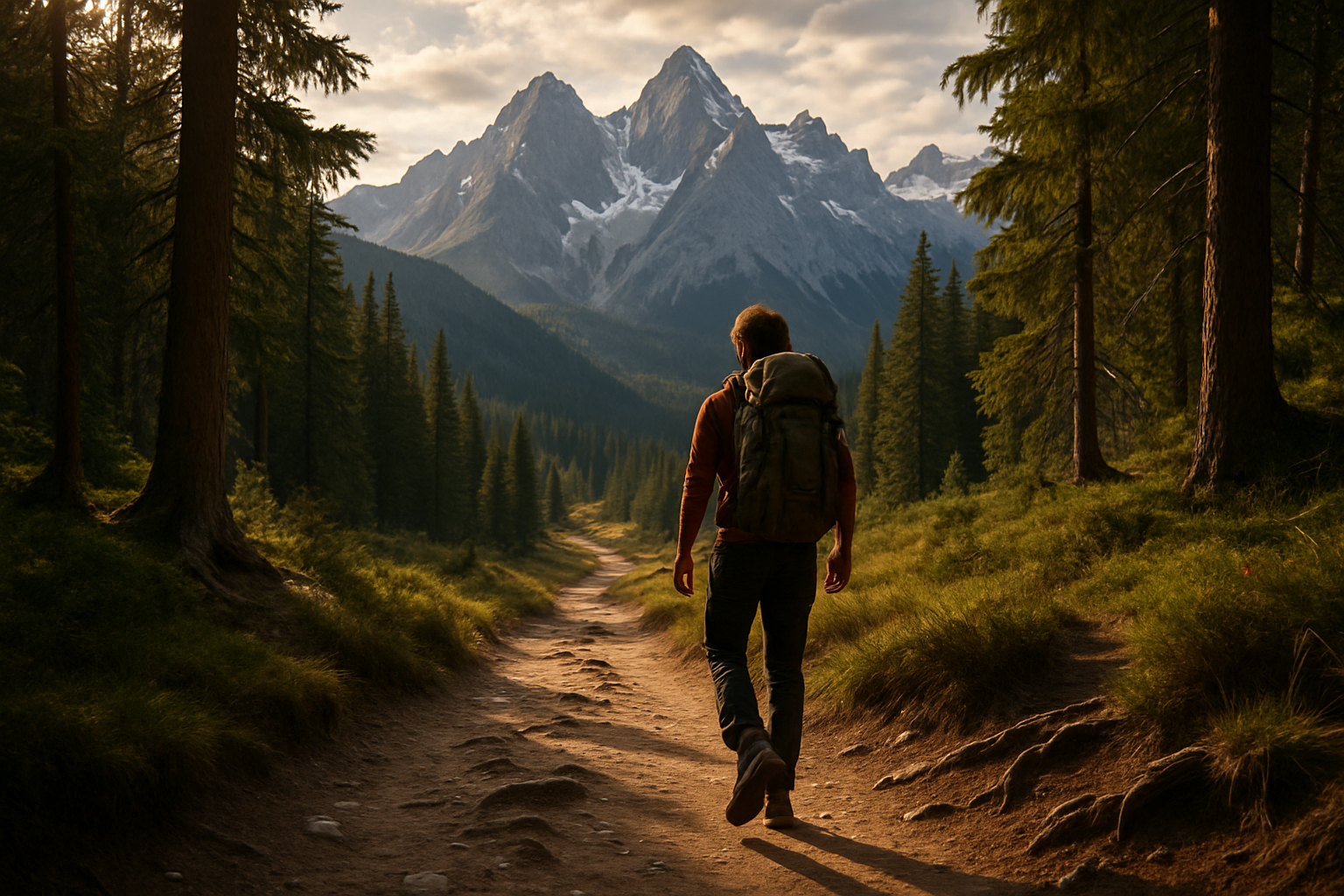Hiking: The Path to Adventure and Self-Discovery
Once upon a time, humans roamed the land, hunting and gathering, exploring the vast expanse of earth with their bare feet. Today, we’ve swapped forests for concrete jungles, and our hunter-gatherer lifestyle for a more sedentary existence. However, the urge to immerse ourselves in nature, to journey on foot and explore the world around us, remains deeply ingrained in our psyche. Enter hiking, a form of travel that satiates this primal craving while offering a myriad of other benefits.

Hiking isn’t a new concept; it dates back to ancient times when people would undertake long journeys on foot for religious or spiritual purposes. However, it has evolved significantly over the years. Today, it is recognized not only as a form of exercise but also as a means of exploration and self-discovery.
The rise of hiking in the modern era can be traced back to the Romantic Movement of the 18th and 19th centuries. During this period, the emphasis shifted from the pursuit of urban sophistication to a celebration of nature and the sublime. This shift led to the emergence of hiking as a recreational activity, and the rest, as they say, is history.
Hiking in the Contemporary World: Trends and Insights
Today, hiking has become more than just an outdoor activity—it has turned into a lifestyle. It represents a desire to break free from the shackles of modern life and reconnect with nature. It’s no surprise, then, that hiking has seen a surge in popularity over the past few years.
What’s interesting is that hiking is evolving to cater to diverse interests. For instance, there’s been a rise in theme-based hikes, such as bird-watching hikes, photography hikes, and culinary hikes, where travelers get to forage for their food.
Another trend is the growing popularity of long-distance hiking. Trails like the Appalachian Trail in the USA, the Camino de Santiago in Spain, and the Great Himalayan Trail in Nepal are seeing an influx of hikers keen on challenging themselves and experiencing the transformative power of a long journey on foot.
Walking the Talk: Benefits and Challenges of Hiking
Hiking offers numerous benefits, both physical and psychological. It’s a great way to stay fit, improve cardiovascular health, and tone muscles. It also reduces stress, enhances mood, and boosts creativity.
However, hiking isn’t without its challenges. It requires preparation, both physical and logistical. Hikers need to be in good health, have the right gear, and know how to navigate and survive in the wilderness. Weather conditions can be unpredictable, and the terrain can sometimes be treacherous.
Despite these challenges, the allure of hiking remains strong. The sense of achievement that comes from conquering a trail, the joy of immersing oneself in nature, and the opportunity for self-reflection and discovery make it a rewarding experience.
Walking Wisdom: Enhancing Your Hiking Experience
-
Start small: If you are new to hiking, start with short, easy trails and gradually work your way up to more challenging ones.
-
Invest in good gear: A good pair of hiking boots, a sturdy backpack, and appropriate clothing can make a big difference.
-
Stay safe: Learn about basic wilderness survival skills and always keep a first-aid kit handy.
-
Respect nature: Follow the ‘Leave No Trace’ principles to minimize your impact on the environment.
-
Enjoy the journey: Remember, hiking is not just about reaching the destination. Take time to soak in the beauty of nature and enjoy the journey.
In conclusion, hiking is a form of travel that’s as old as humanity itself. Yet, it remains as relevant and appealing today as it ever was. Whether you’re seeking adventure, fitness, or a deeper connection with nature, hiking offers a path to fulfilment. So, lace up your boots, hit the trail, and let the journey begin.




